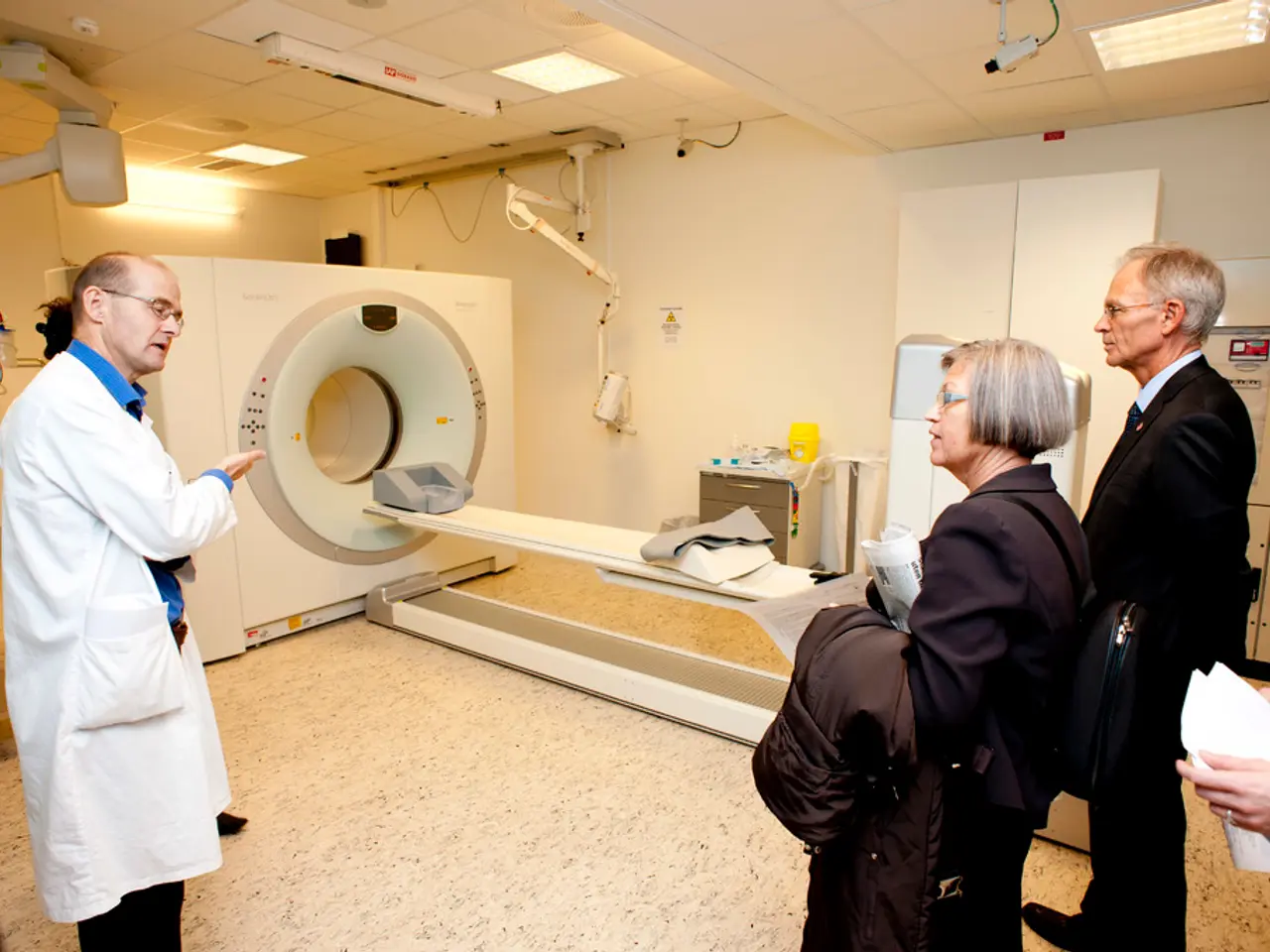Artificial Intelligence-Powered Medical Treatment Standards May Improve Patient Results
Integrating Artificial Intelligence (AI) into healthcare providers' workflows can significantly improve point-of-care treatment for individual patients. Here are five key strategies that highlight the potential benefits of this integration:
1. Automating Administrative Tasks
AI can offload burdensome tasks such as documentation and data gathering, allowing clinicians to focus on high-level decision-making. AI-native Electronic Health Records (EHRs) can automate manual inputs, reduce administrative burdens, and enhance accuracy in documents.
2. Enhancing Decision-Making
AI can analyze comprehensive data to provide insights that inform better care plans and improve patient outcomes. Predictive analytics enabled by AI can identify patients at risk for complications, enabling early interventions.
3. Improving Patient Engagement and Access
AI can generate tailored messages, including follow-ups and personalized treatment plans, enhancing patient-provider communication. AI-powered scheduling systems can reduce waiting times by effectively forecasting demand and allocating resources.
4. Optimizing Clinical Operations
AI can facilitate smooth real-time data sharing across different systems, ensuring full access to patient records. AI can automate repetitive tasks in areas like claims processing, reducing errors and improving operational efficiency.
5. Supporting Clinician Well-being
By automating tasks and improving workflows, AI can help reduce clinician burnout and improve job satisfaction.
The process of incorporating AI in healthcare settings can help providers tap into the potential of AI more effectively. The focus is on converting well-defined clinical care pathways into process models, making AI insights more accessible to healthcare practitioners without requiring them to learn a new user interface or adding additional administrative burdens.
The AI-driven process models do not own the EHR, ensuring independence from the EHR vendor's software lifecycle. This independence allows for greater flexibility in deployment and management. The long-sought goal of value-based care may become a real possibility due to the innate likeness of AI-driven process models to quality measures.
The future of healthcare may define itself with the implementation of AI-driven process models. These models track the current status of care and leave a digital audit trail for the care that was delivered, making each step measurable based on best practices and patient outcomes. The process model is responsible for defining activities and decision gates, while AI provides real-time recommendations for better outcomes. In this way, the "value" in value-based care can be measured and used to influence payment plans.
[1] Artificial Intelligence in Healthcare: Opportunities and Challenges. (n.d.). Retrieved from https://www.mckinsey.com/industries/pharmaceuticals-and-medical-products/our-insights/artificial-intelligence-in-healthcare-opportunities-and-challenges
[2] The State of AI in Healthcare 2020. (2020). Retrieved from https://www.nature.com/articles/d41586-020-01256-8
[3] AI in Healthcare: A Review. (2021). Retrieved from https://www.ncbi.nlm.nih.gov/pmc/articles/PMC8157146/
[4] AI in Healthcare: Improving Patient Care and Clinician Efficiency. (2019). Retrieved from https://www.healthcareitnews.com/news/ai-healthcare-improving-patient-care-and-clinician-efficiency
[5] The Impact of AI on Healthcare: A Comprehensive Review. (2020). Retrieved from https://www.ncbi.nlm.nih.gov/pmc/articles/PMC7465255/
- The integration of Artificial Intelligence (AI) in healthcare workflows, as seen in AI-native Electronic Health Records (EHRs), has the potential to automate therapies-and-treatments related data gathering and documentation, thus enabling science-based medical professionals to focus on the health-and-wellness aspects of their patients, such as high-level decision-making.
- AI-driven process models in healthcare settings can optimize technology-driven operations, such as claims processing, by automating repetitive tasks and reducing errors, thereby advancing the implementation of value-based care, a long-sought goal in the healthcare industry, through the use of artificial intelligence.




